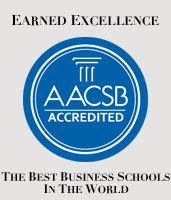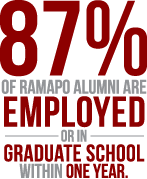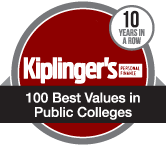College Catalog: 2011-2012
Anisfield School of Business (ASB)
Majors/Concentrations:
- Accounting (B.S.)
- Business Administration Concentrations:
- Finance (B.S.)
- Management (B.S.)
- Marketing (B.S.)
- Economics (B.A.)
- Information Systems (B.S.)
- International Business (B.A.)
Minors:
Other programs offered by the Center for Innovative and Professional Learning (CIPL):
- Rikki Abzug
- Desislava Budeva
- Timothy Burns
- Juan Cabrera
- Vasundhara Chakraborty
- Christina Chung
- Constance J. Crawford
- Susan Eisner
- William J. Frech
- Yuan Gao
- George Gonpu
- Timothy Haase
- Mary Ellen O’Grady Harvey
- Eric Haye
- Jason Hecht
- Teresa D. Hutchins
- Yongbum Kim
- Stephen I. Klein
- Anthony V. LaManna
- Stephen Larson
- Huiping Li
- Romulo Magnaye
- Rick Nunez
- Alexandre Olbrecht
- Ed Petkus
- Thierry Rakotobe-Joel
- Raymond C. Rigoli
- Murray Sabrin
- Rita Shea-Van Fossen
- Cherie A. Sherman
- Alexis Smith
- Anita L. Stellenwerf
- Gladys Torres-Baumgarten
- Alexander Vengerov
- James Woodley
- Xiaoyu Wu
- Kathryn Yeaton
- Kathryn Zeno
 Established in 1979, the Anisfield School of Business is accredited by the Association to Advance Collegiate Schools of Business – AACSB International. The school is committed to educating its undergraduate students through the strategic integration of the business disciplines and the liberal arts. This curriculum prepares students with the skills, knowledge, and business principles to understand and appreciate the economic, social, political, cultural, and technological environment so they will become responsible, effective leaders in the global economy.
Established in 1979, the Anisfield School of Business is accredited by the Association to Advance Collegiate Schools of Business – AACSB International. The school is committed to educating its undergraduate students through the strategic integration of the business disciplines and the liberal arts. This curriculum prepares students with the skills, knowledge, and business principles to understand and appreciate the economic, social, political, cultural, and technological environment so they will become responsible, effective leaders in the global economy.
The Anisfield School of Business places strong emphasis on teaching and mentoring. Student learning and development is of paramount importance. Faculty intellectual contributions are seen as vital in this education process. These contributions include pedagogical research to improve the instructional capabilities of faculty, practitioner research to ensure they are current and relevant in their fields, and discipline-based research to enhance them as scholars. Finally, the faculty contribute to the college and community by sharing their business expertise in private, public, and philanthropic endeavors.
In the spring of 2006, the school was renamed the Anisfield School of Business in recognition of the generous gifts of the Anisfield Family. The gifts were used towards the construction of the new academic building and to provide overall support for the business program.
The Anisfield School of Business prepares students for careers in business and positions of responsibility in both the public and private sectors. The School’s faculty values the liberal arts both as a life enriching experience and as an important background for business study. For this reason liberal arts studies form a crucial part of the business curriculum. The curriculum’s international dimension ensures that students can participate actively and successfully in the global marketplace. Students also receive excellent preparation for pursuing graduate business and law school degrees.
The School’s faculty hold advanced degrees in their fields, and many bring years of experience at the executive level in large and medium sized businesses. This mix of academic preparation and practical application allows students to see and experience how theory and practice interact in business.
The School offers five majors: a B.S. degree in Accounting, a B.S. degree in Business Administration, a B.A. degree in Economics, a B.S. degree in Information Systems, and a B.A. degree in International Business. The B.S. degree in Business Administration offers concentrations in finance, management, and marketing. The school also offers minors in Accounting, Economics, Information Systems and International Business. In addition, the school offers the Business Essentials Certificate Program for non-business majors which provides a basic but broad foundation in business principles, the Web Development Certificate Program, and the Project Management Certificate Program. The School is a Registered Education Provider for PMI, the premier project management accrediting organization worldwide.
All business majors take the same set of business and professional core courses. Some of the core courses are basic to a business program and lead to competence in accounting, computer information systems, economics, finance, international business, management, marketing, and strategic management. As important as they are, these courses alone do not provide sufficient preparation to deal with the highly complex and often unanticipated forces that can influence personal and business activities. Accordingly, the Anisfield School of Business provides a strong liberal arts and interdisciplinary foundation to broaden the student’s perspective and intellectual abilities.
All students in the School begin their studies with an integrative course exploring the intersection of business, government, and society. They complete their studies with an integrative capstone course that advances their strategic management competencies.
The School is housed in the new Anisfield School of Business Building which opened in the fall of 2007. The building has state-of-the-art classrooms, teaching computer labs and conference facilities. In the fall of 2010, the Global Financial Trading Laboratory opened with real time access to the world’s financial data and electronic trading systems that allow students to gain valuable insight into how financial and economic theories earned in the classroom apply in real financial markets. All students in the School are given electronic mail accounts and encouraged to communicate with course instructors, advisers, and classmates using e-mail and the College Luminis Portal.
Rules For Acceptance into all Majors of the Anisfield School of Business:
In general, students must achieve a 2.5 GPA or better at 48 credits in order to be officially admitted to any major in the Anisfield School of Business. However, students should carefully review the detailed admissions requirements in the 2.5 GPA Standard and Appeals Procedure (PDF). For questions, see your faculty advisor or Kim McDonough in room ASB-227, kmcdonou@ramapo.edu.
The Anisfield School of Business seeks to combine theory with practice by supporting the Cooperative Education Program and sponsoring extracurricular organizations and activities. Students are urged to join the Accounting Club, the International Business Association, the Society for Human Resource Management, the Management Club, the Finance Club, and the Marketing Club. The School also sponsors a local chapter of Beta Gamma Sigma, the leading national business administration honor society, and a chapter of Omicron Delta Epsilon, an economics honor society. The School is also home to the Eastern Economic Association and the Sabrin Center for Free Enterprise and participates in the competitive Fed Challenge.
Please refer to the Academic Course Descriptions section of the online catalog for undergraduate course descriptions.





